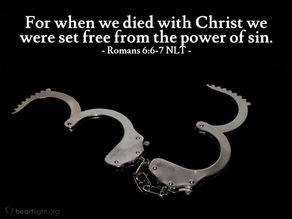Acts 10:23-26 - Saint or saint?
- Chad Werkhoven
- Aug 16, 2024
- 5 min read
You don't need to pray in the name of Saint So & So
Acts 10:23-26 (NIV)
CONTEXT: Peter has just had the vision in which God sent down a sheet with multiple kinds of meats, including non-kosher varieties, and told him to eat. This would have been a major cultural shift for Peter, but God wasn't done prying the door open for Gentiles. Immediately afterwards, Peter is sent to the house of Cornelius, a Roman centurion. The Jewish law Peter grew up with prohibited a Jew from associating with or visiting a Gentile (v28), but Peter obeyed God's call.
The next day Peter started out with them, and some of the believers from Joppa went along. 24 The following day he arrived in Caesarea. Cornelius was expecting them and had called together his relatives and close friends. 25 As Peter entered the house, Cornelius met him and fell at his feet in reverence. 26 But Peter made him get up. “Stand up,” he said, “I am only a man myself.”
Listen to passage & devotional:
Belgic Confession of Faith, Article 26: The Intercession of Christ
We believe that we have no access to God
except through the one and only Mediator and Intercessor:
Jesus Christ the Righteous.
He therefore was made man,
uniting together the divine and human natures,
so that we human beings might have access to the divine Majesty.
Otherwise we would have no access.
But this Mediator,
whom the Father has appointed between himself and us,
ought not terrify us by his greatness,
so that we have to look for another one,
according to our fancy.
For neither in heaven nor among the creatures on earth
is there anyone who loves us
more than Jesus Christ does.
Although he was “in the form of God,”
he nevertheless “emptied himself,”
taking the form of “a man” and “a servant” for us;
and he made himself “completely like his brothers.”
Suppose we had to find another intercessor.
Who would love us more than he who gave his life for us,
even though “we were his enemies”?
And suppose we had to find one who has prestige and power.
Who has as much of these as he who is seated
“at the right hand of the Father,”
and who has all power
“in heaven and on earth”?
And who will be heard more readily
than God’s own dearly beloved Son?
So then, sheer unbelief has led to the practice
of dishonoring the saints,
instead of honoring them.
That was something the saints never did nor asked for,
but which in keeping with their duty,
as appears from their writings,
they consistently refused.
We should not plead here
that we are unworthy—
for it is not a question of offering our prayers
on the basis of our own dignity
but only on the basis of the excellence and dignity
of Jesus Christ,
whose righteousness is ours
by faith.
Since the apostle for good reason
wants us to get rid of this foolish fear—
or rather, this unbelief—
he says to us that Jesus Christ
was “made like his brothers in all things,”
that he might be a high priest
who is merciful and faithful
to purify the sins of the people.
For since he suffered,
being tempted,
he is also able to help those
who are tempted.
Summary
This has been a jarring couple of days for Peter. He'd been faithfully proclaiming the gospel, healing diseases and even calling a woman back from the dead. But in all of this, Peter's ministry was exclusively to Jewish people; after all, they were God's chosen people! But all of that was about to change, and the change would come suddenly and overwhelmingly.
It started with the meat laden sheet being lowered from heaven, with a divine voice commanding Peter to take and eat. Peter corrected the Lord and refused, so God repeated the process three more times to accommodate his obstinate apostle. Even as Peter is still trying to wrap his head around the massive paradigm shift that God had just laid out, there was a knock at his door with an invitation to the home of a Gentile of Gentiles: a Roman centurion.
To Peter's credit, the next day Peter set out in response to the invitation, and upon his arrival, didn't just find a house with one Gentile, but all of Cornelius' friends and relatives as well. The next words in the passage don't seem very profound, but they represent a massive step forward for the church: "Peter entered the house."
All of this to say that if anyone ever deserved the title of 'saint', Peter had all the more reason. In the last few days, he'd raised the dead, had God speak to him directly from heaven, and suppressed a lifetime of well deserved cultural prejudice as he stepped into the home of a man representing the worst of the world in order to share the gospel.
And yet this saint of saints refused the worship offered by this Gentile of Gentiles.
Dig Deeper
Most of us don't have a strong temptation to channel our prayers through one particular patron saint or another. We respect these 'Saints' as people God used in a mighty way, but yet we know we don't need their assistance in responding to God's gracious invitation to come before His throne of grace; after all, it's "in Jesus' name we pray." Besides, the Bible refers to all of God's covenant people as saints, not just the really exceptional ones.
So it may seem odd or anachronistic for our Confession - this document which summarizes what we believe the Bible says about the most important doctrines of our faith - to continue to include this paragraph about the danger of venerating saints. Certainly the Belgic Confession must be read in the context of the day and age it was written, and praying in the name of the saints was a much bigger issue four centuries ago than it is now, but why do we continue to confess this seemingly irrelevant paragraph yet today?
Don't gloss over the opening words of this paragraph: "sheer unbelief has led to the practice of dishonoring the saints... " (another translation puts it, "a pure lack of trust"). The underlying problem - our perceived need to 'pad our resume' before presenting our requests to God - continues today and will continue until the day Christ returns.
You don't need puff yourself up before God, and you certainly don't need to appeal to a long dead saint to present your requests to God. God doesn't accept you on the basis of your own dignity or that of any other Christian, no matter who. You and your prayers are received "only on the basis of the excellence and dignity of Jesus Christ, whose righteousness is yours by faith."
ACKNOWLEDGE WHO GOD IS: Our Father, who alone deserves all of our worship, trust and respect;
ALIGN YOUR LIFE WITH GOD'S WILL: Pray that you will cling only to Christ in every aspect of life, including your prayers;
ASK GOD FOR WHAT YOU NEED:
Read the New Testament in a year! Today: 1 Corinthians 14




















Comments